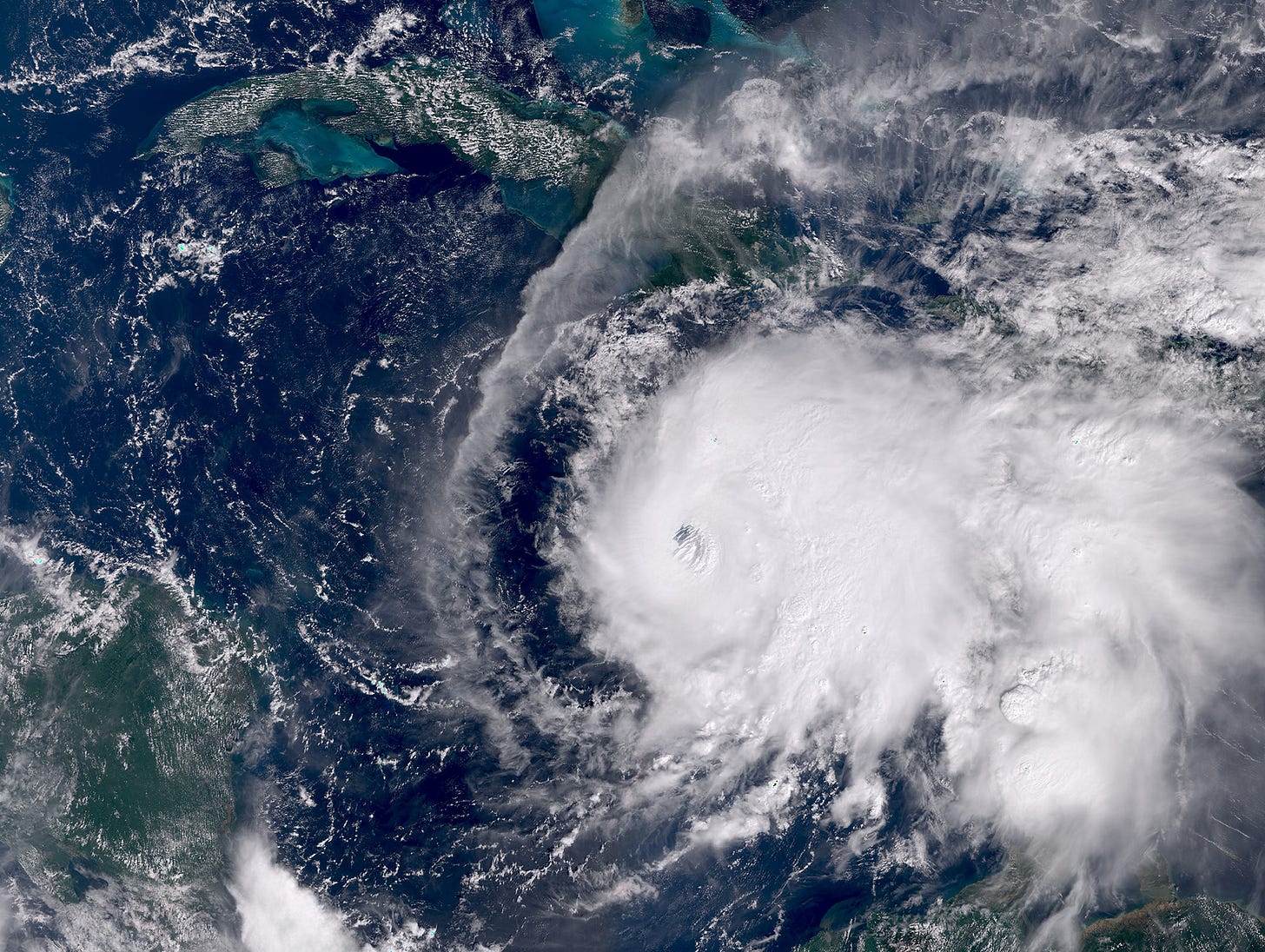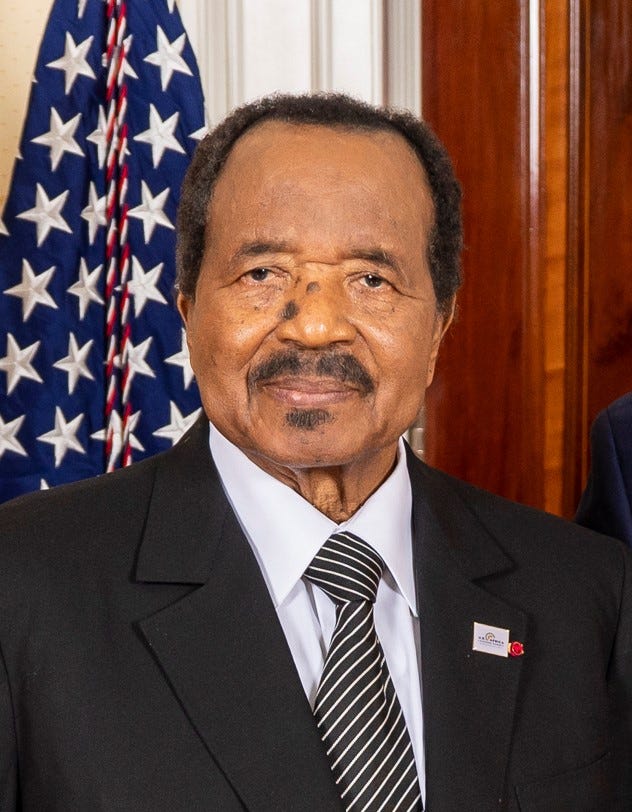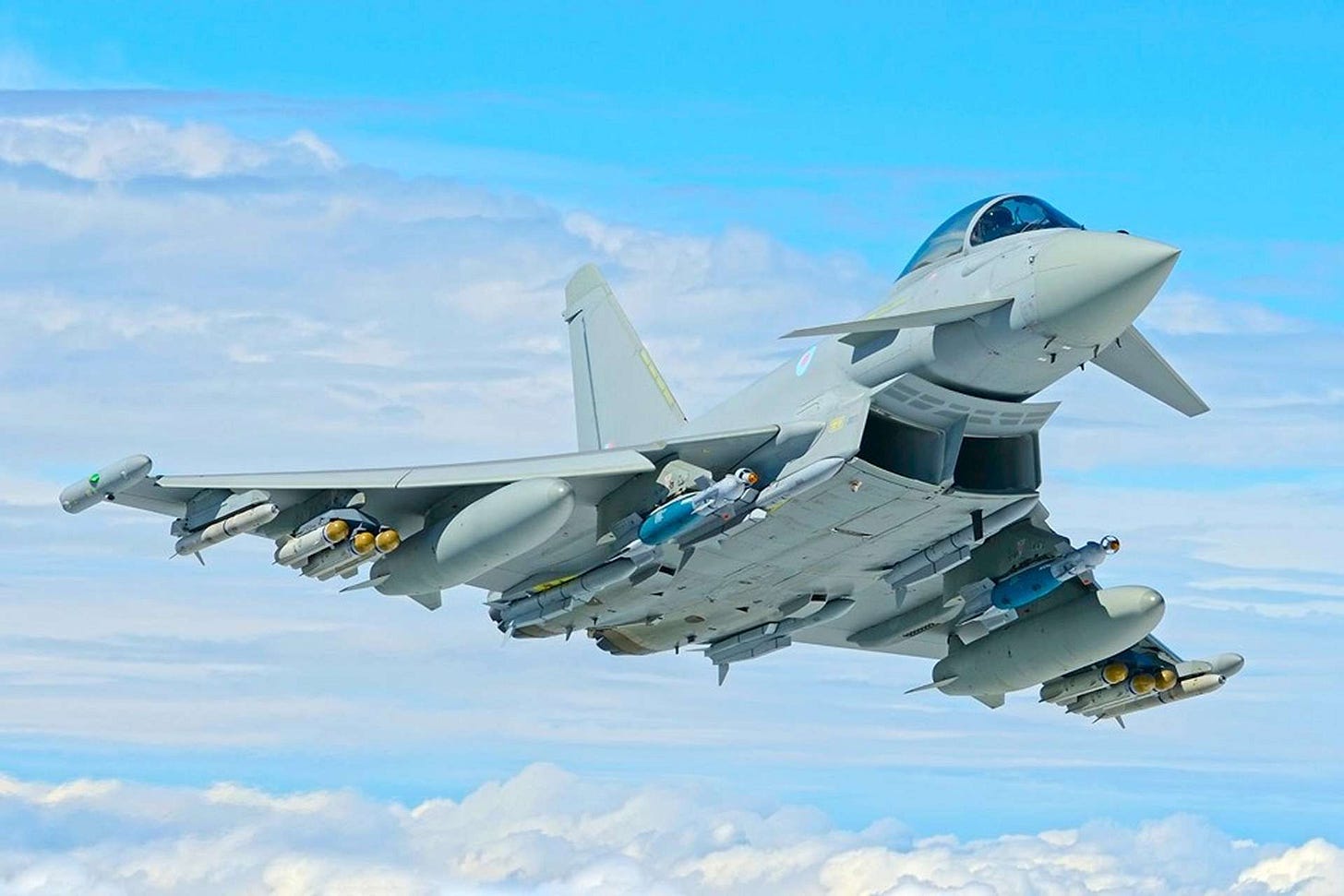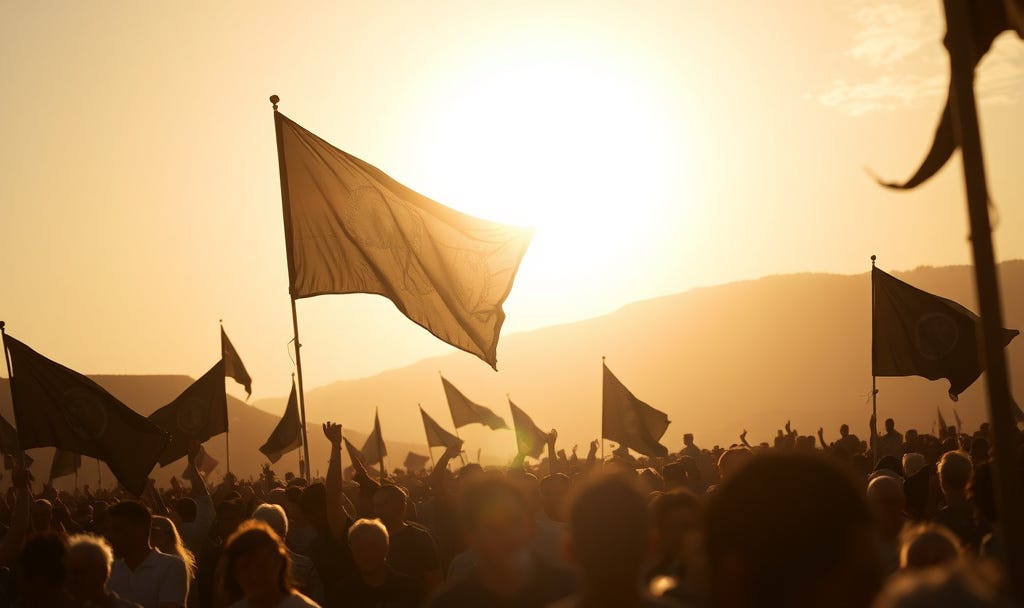10 Things Global News - 28th October 2025
Interesting and important news from around the world
Jamaica Braces for Record Hurricane
Putin Hosts North Korean Envoy in Moscow
Biya, 92, Secures Eighth Term As Cameroon President
Lukoil to Sell Overseas Assets After US Sanctions
UN Chief Says 1.5C Overshoot Now Inevitable
UK-Turkey Seal £8bn Typhoon Jet Deal
US–Japan Sign Critical Minerals Framework
China, ASEAN Upgrade Trade Pact Amid Tariffs
China Condemns UK Sanctions On 11 Firms
Venezuela Says CIA Plot Foiled as Tensions Rise
On this day ….
On this day in 1886 France’s gift to the United States, the Statue of Liberty was formally unveiled in New York Harbour before thousands of spectators, symbolising liberty and international friendship.
Designed by Frédéric Auguste Bartholdi, with Gustave Eiffel’s engineering, the statue greeted generations of immigrants arriving by sea.
Over time its meaning expanded from Franco-American ties to a universal emblem of democracy and refuge.
When global migration and national identity are once again contested, Lady Liberty’s torch still poses a question: does the USA still shine a light of freedom and welcome to the world?
Hurricane Melissa, the world’s strongest storm this year, is bearing down on Jamaica with sustained winds of 175 mph (282 km/h). The Category 5 hurricane is expected to make landfall early Tuesday, bringing what forecasters call “catastrophic and life-threatening” conditions.
The National Hurricane Center warned that the slow-moving storm could dump up to 40 inches (100 cm) of rain, triggering deadly flooding and landslides across the island.
Prime Minister Andrew Holness ordered evacuations in Kingston and other vulnerable areas, urging citizens to “stay indoors and comply.” Shelters have been opened nationwide, and regional governments have issued alerts from Cuba to the Bahamas. Four deaths have already been reported in Haiti and the Dominican Republic, alongside three in Jamaica.
The NHC said no regional infrastructure could withstand such winds, calling Melissa a “dire situation unfolding in slow motion.”
Sources: BBC, Reuters
Russian President Vladimir Putin met North Korean Foreign Minister Choe Son-hui at the Kremlin on Monday, underscoring the growing partnership between the two sanctioned states. Choe conveyed “warm wishes” from Kim Jong-un and praised the “spiritual closeness” between Moscow and Pyongyang. Putin said relations were developing “according to plan” as both sides discussed projects to deepen cooperation.
The meeting followed strategic talks with Russian Foreign Minister Sergey Lavrov, during which the two countries reaffirmed alignment on global issues, including the conflict in Ukraine. North Korea has sent about 10,000 troops and weapons to Russia since signing a 2024 defence pact that commits both sides to mutual support in case of attack.
At least 600 North Korean soldiers have died in the fighting, and Pyongyang has opened a museum to honour its losses — the first time it has memorialised troops killed abroad.
Sources: South China Morning Post, Al Jazeera
Cameroon’s Constitutional Council declared President Paul Biya the winner of the 12 October election with 53.7% of the vote, ahead of Issa Tchiroma Bakary on 35.2%. Turnout was 46.3%. Tchiroma rejected the result, calling it a “masquerade,” after earlier claiming victory and urging supporters to protest. At 92, Biya — the world’s oldest head of state — extends more than four decades in power into an eighth term.
Tensions flared around the announcement. Authorities banned public gatherings and restricted traffic in major cities, while security forces were deployed across Yaoundé.
The governor reported four people killed in clashes in Douala. Tchiroma’s camp said a rally in Garoua turned deadly; an on-scene reporter saw one man shot, though the death could not be verified.
Analysts long expected Biya to retain office in a system critics say advantages the incumbent.
Sources: France 24, BBC
Lukoil said it will sell its international assets after the United States imposed sanctions on the company last week. The move will be conducted under an OFAC wind-down licence, with bids from potential purchasers already being considered; the firm may seek a licence extension to ensure uninterrupted operations. Britain also recently targeted Lukoil and Rosneft, as well as 44 “shadow fleet” tankers, in a bid to tighten energy sanctions.
The company did not list specific assets for sale, but its portfolio includes Iraq’s West Qurna-2 oilfield, where it holds a 75% stake, and refineries in Bulgaria and Romania.
The Burgas refinery in Bulgaria has a capacity of about 190,000 barrels per day. Lukoil supplies crude to Hungary and Slovakia and has stakes in terminals and retail chains across Europe, alongside projects in Central Asia, Africa and Latin America.
Sources: FT, Reuters
António Guterres said humanity will overshoot the Paris 1.5C target and must “change course” to keep the overshoot as brief and shallow as possible. He warned of “devastating consequences” and tipping points in the Amazon, the Arctic and the oceans if emissions are not cut far faster.
Fewer than a third of countries have submitted updated climate plans, he said, and those received imply only a 10% cut in emissions versus about 60% needed. He urged stronger Indigenous representation at Cop30 in Belém and a rapid transition away from fossil fuels.
A parallel debate is intensifying ahead of the summit. Bill Gates argued for a “strategic pivot” from temperature targets to reducing human suffering, saying innovation can curb warming and scarce funds should prioritise health and poverty in the poorest countries. Climate scientists counter that every fraction of a degree matters and long-term goals still require deep emissions cuts.
Sources: The Guardian, The Independent
The UK and Turkey have agreed a defence deal worth up to £8bn for 20 Eurofighter Typhoon jets, finalised during Prime Minister Keir Starmer’s visit to Ankara and meeting with President Recep Tayyip Erdoğan. Starmer called it “a win for British workers… and for Nato security”, with the government saying the order strengthens allied air power and interoperability.
It is the first new Typhoon order since 2017 and the largest UK fighter export in nearly two decades, sustaining production lines for years. Initial deliveries are expected in 2030. Turkish officials view the aircraft as a step-change over the country’s predominantly F-16 fleet, while London casts the deal as part of a wider industrial partnership and Nato deterrence effort.
Sources: The Telegraph, UK Defence Journal
President Donald Trump and Japan’s new prime minister, Sanae Takaichi, signed a framework agreement in Tokyo to cooperate on critical minerals and rare earths, aiming to reduce dependence on China. The ceremony at Akasaka Palace came less than a week after Takaichi took office, and two days before Trump is due to meet China’s Xi Jinping in South Korea. Takaichi billed the accord as the start of a “new golden age” in ties.
Context around the deal remains tentative. China has recently expanded export restrictions on critical minerals, and US negotiators have sought a one-year reprieve ahead of the Trump–Xi meeting.
Documents released alongside the signing described broad coordination on permitting, financing and mapping, while a related trade document noted progress and a pledge framed as up to $550bn in US projects, but without firm detail.
Sources: Washington Post, Bloomberg
China and the Association of Southeast Asian Nations have upgraded their free trade agreement as US tariffs reshape regional commerce. Signed in Kuala Lumpur and witnessed by Chinese Premier Li Qiang and Malaysian Prime Minister Anwar Ibrahim, the “3.0” protocol widens cooperation in infrastructure, digital and green transition, trade facilitation and people-to-people exchanges.
China and ASEAN are now each other’s largest trade partners, with trade reaching $785bn in the first nine months of 2025, up 9.6% year on year. Li urged “expanded and higher-quality” cooperation and criticised unilateralism and protectionism for disrupting the global trade order. The upgrade coincides with President Donald Trump’s attendance at the summit and plans to meet Xi Jinping.
The US has signed deals with Cambodia and Malaysia and frameworks with Thailand and Vietnam, setting reciprocal tariffs at 19–20%. Treasury Secretary Scott Bessent said a tariff framework should help both sides avoid a previously threatened 100% levy on Chinese goods.
Sources: Associated Press, Al Jazeera
Beijing has denounced Britain’s decision to sanction 11 Chinese companies over alleged links to Russia, calling the measures “unilateral” and lacking any UN mandate. China’s Ministry of Commerce urged London to lift the restrictions and warned the move could damage China-UK ties, saying it would “firmly safeguard” Chinese companies’ rights and interests.
The Chinese embassy in London said it had lodged “stern representations” and rejected “blame-shifting or smearing”.
The UK announced the measures on 15 October as part of a wider Russia-related package targeting 90 entities and ships, with ministers arguing that third-country facilitators are helping keep Russian oil on global markets. Chancellor Rachel Reeves said there is “no place for Russian oil on global markets”.
China countered that it strictly controls dual-use exports and that normal cooperation between Chinese and Russian firms should not be affected.
Sources: South China Morning Post, Anadolu Agency
Venezuela has accused the United States of orchestrating a “false flag” plot through a CIA-financed cell allegedly targeting the USS Gravely, a US destroyer docked in Trinidad and Tobago. Interior Minister Diosdado Cabello said four people had been arrested, claiming the plan was to attack the vessel and blame Caracas. Foreign Minister Yván Gil described the alleged plot as following “the same imperial script as the Maine and the Gulf of Tonkin.”
President Nicolás Maduro suspended a gas agreement with Trinidad and Tobago, accusing Prime Minister Kamla Persad-Bissessar of turning her country into “an aircraft carrier of the American empire.”
The US has deployed multiple warships and bombers to the Caribbean in recent weeks, while Venezuela condemned military exercises in Trinidad as “hostile provocation.” Washington has not responded to the claims, which follow years of political confrontation and US non-recognition of Maduro’s rule.
















